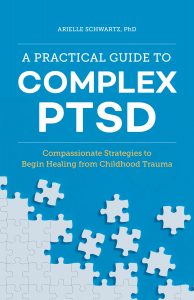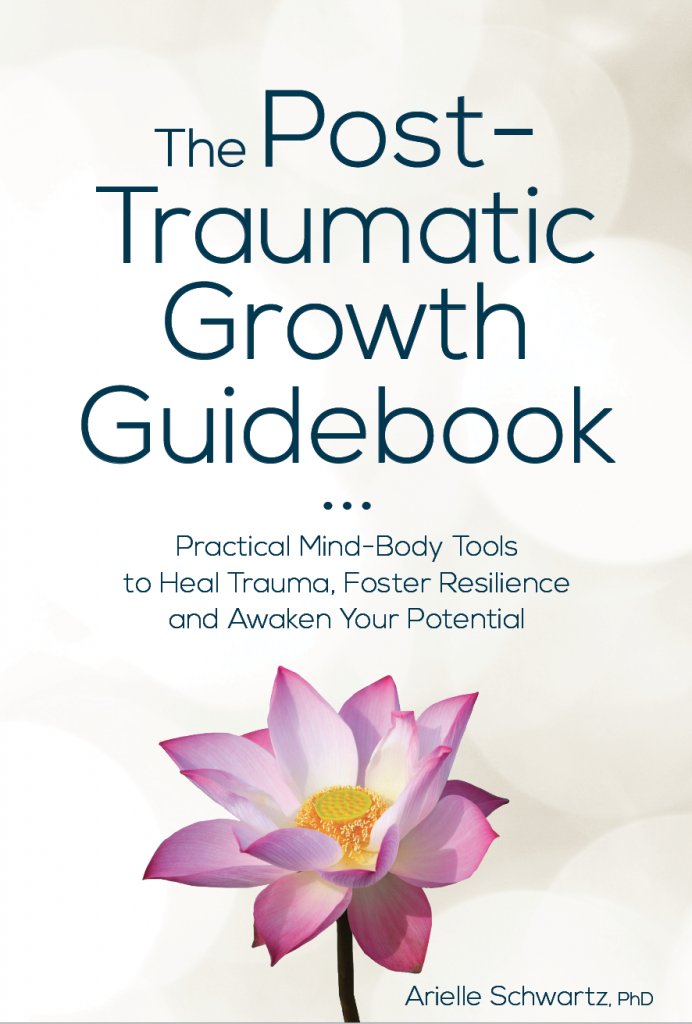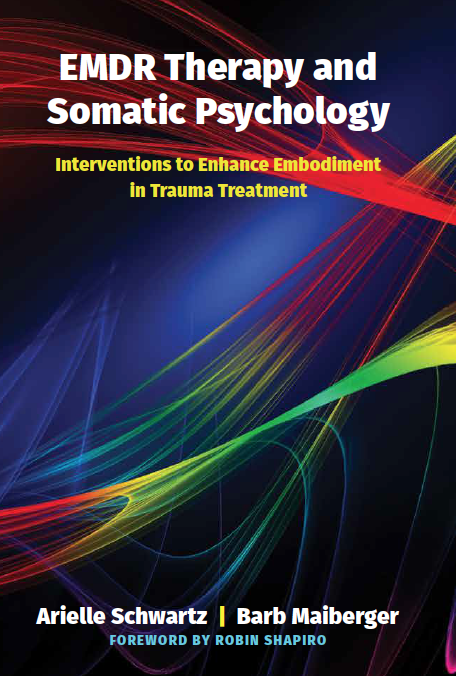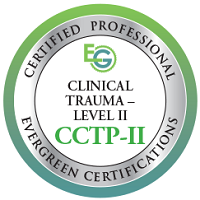“It was Never my Fault”

Having a history of Complex PTSD (C-PTSD) from childhood trauma can lead you to struggle with your self-perception. Having self-perception issues refers to a sense of self that is based upon inaccurate beliefs that you are damaged, inferior, worthless, or unlovable. These beliefs are commonly accompanied by feelings of shame and guilt. It is common to feel as though you do not belong or that you are irreconcilably different from other people. Difficulties with self-perception can also lead you to mistakenly believe that other people are rejecting or feeling critical of you.
It can be difficult to tolerate the discomfort associated with shame, anger, and hurt that often accompany childhood trauma. This can lead to a wide range of avoidance symptoms including perfectionism, unrelenting self-criticism, and addictions. For example, you might react angrily toward others or become hypercritical of yourself in order to avoid feeling sad.
“In order to heal, it is important to work with self-perception issues as they are experienced, mentally, emotionally, and physically. You can learn to be with your emotions without the need to run away, attack yourself, or attack others. You can learn to validate your experience, and with practice, you can reclaim your life from C-PTSD.” -Dr. Arielle Schwartz
Sebastian’s Story

Sebastian worked hard to support his family in the construction business. He was a responsible husband and father. But, when he would get triggered, he would attack himself viciously. These self-attacks were especially fierce if he felt that he had made a mistake. Then, he would say, “I’m such a loser! I can’t get anything right! What is wrong with me!” Sometimes, he would turn these critical statements outward toward his wife and daughter. But, when that happened, he just felt worse about himself. That is when he’d call himself a monster.
It was his wife who encouraged Sebastian to come to therapy. She knew that he didn’t have an easy childhood, and she felt sad to see him be so hard on himself. In therapy, we explored Sebastian’s history. He described himself as a tough kid. He had a hard time in school and never was much of a good student. He spoke about how his father would smack him around when he misbehaved or got bad grades. This started happening when Sebastian was pretty young. By the time he was a teenager he got involved with the “wrong crowd” and started drinking and getting into fights.
Initially, Sebastian was convinced that his father had done nothing wrong. He said that he deserved to be hit because he was a difficult kid. However, we began to explore that underneath his harsh inner critic, he was actually carrying immense amount of shame. Not only did his father treat him harshly but his mother never stepped in to protect him. As a result, he assumed that he must have deserved it. Sebastian’s perfectionism and self-critical thoughts were a way of taking the anger that he real felt toward his parents and turning it inward toward himself.
Once he recognized this pattern, Sebastian was able to talk about his feelings. He recognized that he had defended himself against vulnerable emotions because it was not safe to reveal that he felt hurt when he was a child. Sebastian shared, “Now I realize that it was never my fault.” In time, he became more self-accepting, tolerant of his mistakes, and emotionally available to his wife and daughter
Healing Strategy: Validating Emotions

We receive validation when we have an opportunity to speak to someone who listens to us without judgment. That person is offering unconditional acceptance which allows you to acknowledge the importance of your thoughts and feelings. This healing strategy for C-PTSD recovery focuses on helping you to validate your own emotions by offering unconditional acceptance for your experiences and emotions. This practice can be especially helpful during times when you feel confused or unclear about your response to a person or situation. Remember, if you find self-validation challenging, it is okay to seek support from someone you trust.
- See if you can identify the difficult emotion that you are feeling. Is it sadness, anger, fear, disappointment, confusion, or shame?
- Notice any judgmental or invalidating thoughts such as telling yourself such as “I’m being too sensitive,” “I should just get over it,” or “my feelings are stupid.”
- Make an agreement with yourself to suspend or stop any invalidating thoughts. Try saying to yourself the word, “stop” and then saying, “I deserve to treat myself with kindness and respect.”
- Try and find the source or trigger of the difficult emotion by asking yourself “When did I first start feeling this way?” or “What circumstances contributed to my feelings?”
- Explore validating statements such as “My feeling makes sense because…” or “How I feel is important because…”
- If it is difficult to validate your experience, ask yourself: “How would someone else feel in my situation?” Explore how you would offer compassion or understand to that person.
- Ask yourself, “What do I want?” and then tell yourself, “If it is important to me, then it is important.”
- Notice what happens as you acknowledge and accept your current experience and emotional response. How do you feel in your body now?
C-PTSD Recovery

It is important to remember that feelings of unworthiness are extremely common. When these feelings arise, they can serve as a reminder to take a moment for self-care.
Often, the deep work of reclaiming yourself from C-PTSD involves the careful guidance of a therapist. We are not meant to walk the healing path alone. Since childhood traumas are relational wounds, having a positive experience of a healing relationship can help to restore your faith in the goodness of other people. In time, therapy can help you build your capacity to hold yourself and your pain in a loving manner.
A Practical Guide to Complex PTSD

This post is an excerpt from my book, A Practical Guide to Complex PTSD: Compassionate Strategies for Childhood Trauma, which is meant to provide compassionate support for the process of healing from childhood trauma. You can think of it as a lantern that will illuminate the dark spaces and provide a sense of hope in moments of despair. The practical strategies you will learn in this book are taken from the most effective therapeutic interventions for trauma recovery. You will learn the skills to improve your physical and mental health by attending to the painful wounds from your past without feeling flooded with overwhelming emotion. My wish is to help you discover a new sense of freedom. The traumatic events of your past no longer need to interfere with your ability to live a meaningful and satisfying life. Click here to Order on Amazon.
Build your Resilience

You might also like The Post Traumatic Growth Guidebook. Within this book, you will find an invitation to see yourself as the hero or heroine of your own life journey. A hero’s journey involves walking into the darkness on a quest for wholeness. This interactive format calls for journaling and self-reflection, with practices that guide you beyond the pain of your past and help you discover a sense of meaning and purpose in your life. Successful navigation of a hero’s journey provides opportunities to discover that you are more powerful than you had previously realized. Click here to order the book on Amazon.
Bestselling Workbook on C-PTSD

In The Complex PTSD Workbook, you’ll learn all about Complex PTSD Recovery and gain valuable insight into the types of symptoms associated with unresolved childhood trauma, while applying a strength-based perspective to integrate positive beliefs and behaviors. Click here to order.
Want to learn more about healing PTSD?

For therapists, The EMDR Therapy and Somatic Psychology book, teaches you how to integrate two of the best known trauma recovery modalities into your practice. Click to order it here and increase your toolbox for healing using this integrative and effective approach to healing.
About Dr. Arielle Schwartz

Dr. Arielle Schwartz is a licensed clinical psychologist, wife, and mother in Boulder, CO. She offers trainings for therapists, maintains a private practice, and has passions for the outdoors, yoga, and writing. She is the developer of Resilience-Informed Therapy which applies research on trauma recovery to form a strength-based, trauma treatment model that includes Eye Movement Desensitization and Reprocessing (EMDR), somatic (body-centered) psychology and time-tested relational psychotherapy. Like Dr. Arielle Schwartz on Facebook,follow her on Linkedin and sign up for email updates to stay up to date with all her posts. Dr. Schwartz is the author of four books:








